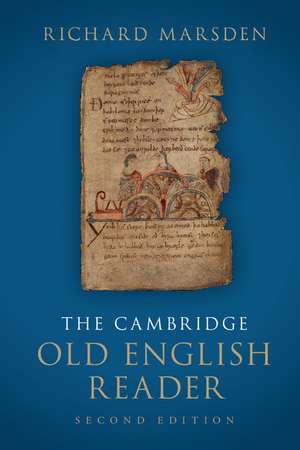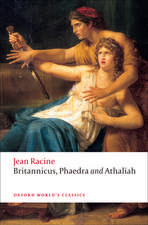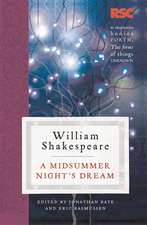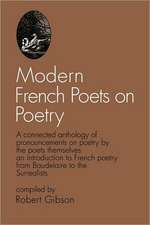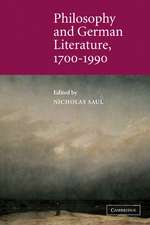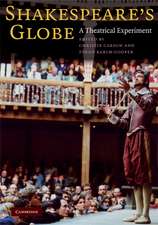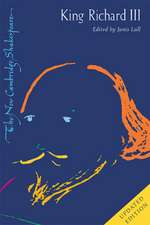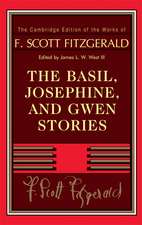The Cambridge Old English Reader
Autor Richard Marsdenen Limba Engleză Paperback – apr 2015
| Toate formatele și edițiile | Preț | Express |
|---|---|---|
| Paperback (1) | 242.81 lei 3-5 săpt. | +33.67 lei 7-13 zile |
| Cambridge University Press – apr 2015 | 242.81 lei 3-5 săpt. | +33.67 lei 7-13 zile |
| Hardback (1) | 822.21 lei 6-8 săpt. | |
| Cambridge University Press – apr 2015 | 822.21 lei 6-8 săpt. |
Preț: 242.81 lei
Nou
Puncte Express: 364
Preț estimativ în valută:
46.46€ • 48.51$ • 38.45£
46.46€ • 48.51$ • 38.45£
Carte disponibilă
Livrare economică 14-28 martie
Livrare express 28 februarie-06 martie pentru 43.66 lei
Preluare comenzi: 021 569.72.76
Specificații
ISBN-13: 9781107641310
ISBN-10: 1107641314
Pagini: 614
Ilustrații: 1 b/w illus.
Dimensiuni: 152 x 228 x 32 mm
Greutate: 0.88 kg
Ediția:Revised
Editura: Cambridge University Press
Colecția Cambridge University Press
Locul publicării:New York, United States
ISBN-10: 1107641314
Pagini: 614
Ilustrații: 1 b/w illus.
Dimensiuni: 152 x 228 x 32 mm
Greutate: 0.88 kg
Ediția:Revised
Editura: Cambridge University Press
Colecția Cambridge University Press
Locul publicării:New York, United States
Cuprins
Preface to the second edition; Preface to the first edition; List of abbreviations; Introduction; Beginning Old English; 1. Getting started; 2. Practice sentences; 3. Practice texts; 4. Keys to test sentences and texts; 5. Beginning poetry; The Texts: Part I. Teaching and Learning: 1. In the Schoolroom (from Ælfric's Colloquy); 2. A Personal Miscellany (from Ælfwine's Prayerbook); 3. Medicinal Remedies (from Bald's Leechbook); 4. Learning Latin (from Ælfric's Excerptiones de arte grammatica anglice); 5. A New Beginning (Alfred's 'preface' to his translation of Gregory's Cura pastoralis); 6. The Wagonwheel of Fate (from Alfred's translation of Boethius's De consolatione Philosophiae); Part II. Keeping a Record: 7. Laws of the Anglo-Saxon Kings; 8. England under Attack (from the Anglo-Saxon Chronicle: annals for 981–93, 995–8 and 1002–3); 9. Bede's Ecclesiastical History of the English People; 10. The Battle of Brunanburh; 11. The Will of Ælfgifu; 12. The Fonthill Letter; Part III. Spreading the Word: 13. After the Flood (from the Old English Hexateuch: Gen 8.6–18 and 9.8–13); 14. The Crucifixion (from the Old English Gospels: Mt 27.11–54); 15. King Alfred's Psalms; 16. A Translator's Problems (Ælfric's preface to his translation of Genesis); 17. Satan's Challenge (Genesis B, lines 338–441); 18. The Drowning of Pharaoh's Army (Exodus, lines 447–564); 19. Judith; Part IV. Example and Exhortation: 20. Bede's Death Song; 21. Two Holy Women; 22. A Homily for Easter Sunday (from Ælfric's Sermones catholicae); 23. The Dream of the Rood; 24. On False Gods (Wulfstan's De falsis deis); 25. The Sermon of the Wolf (Wulfstan's Sermo Lupi); 26. The Seafarer; Part V. Telling Tales: 27. Falling in Love (from Apollonius of Tyre); 28. The Trees of the Sun and the Moon (from The Letter of Alexander); 29. Cynewulf and Cyneheard (from the Anglo-Saxon Chronicle: annal for 755); 30. The Battle of Maldon; 31. Beowulf; 32. The Fight at Finnsburh; Part VI. Reflection and Lament: 33. Truth is Trickiest (Maxims II); 34. The Durham Proverbs; 35. Five Anglo-Saxon Riddles; 36. Deor; 37. The Ruin; 38. The Wanderer; 39. Wulf and Eadwacer; 40. The Wife's Lament; Manuscripts and textual emendations; The writing and pronunciation of Old English; Reference grammar of Old English; Glossary; Guide to terms; Index.
Recenzii
Review of previous edition: '… offering a bountiful assortment of diverse texts thoughtfully edited for basic students of Old English. The book seems to arise from a long and dedicated engagement with Old English pedagogy, and its sheer diversity and breadth of scope makes it likely that almost any teacher of Old English will find something in it of value … The rich banquet found in the Cambridge [Old English] Reader would not easily be exhausted in a semester, or even a year-long course in Old English; it is sure to inspire in both students and teachers alike a fresh dedication to the work of understanding Anglo-Saxon England.' R. Liuzza, The Medieval Review
Review of previous edition: 'Marsden admirably fulfils his task of providing a canon-expanding list of texts.' R. Boenig, Medievalia et Humanistica
Review of previous edition: 'The selection of texts covers ground that no previous reader has approached. There are items that will be of interest to specialists in women's studies and cultural studies … The reference grammar has the best presentation I have seen in a resource of this sort – the content is both comprehensive and concise; and the arrangement is logical and user-friendly. The headnotes are also outstanding …' Paul Remley, University of Washington, Seattle
Review of previous edition: 'Marsden has done a masterful job of glossing and annotating the texts in the Reader … he gets the level of annotation just right for a university-level student of the subject. I admire his headnotes very much for the amount of material he manages to convey in a relatively short space … I think that this book will be very easy to teach from. The number of texts that he offers in the book is remarkable and admirable … in addition, the careful level of glossing and annotation of some difficult texts means that a teacher can assign a much wider range of texts than usual in an introductory course …' Katherine O'Brien O'Keeffe, University of Notre Dame
Review of previous edition: 'Marsden's Reader is traditional … The preliminaries offer sensible and succinct observations on such matters a as punctuation, spelling variation, and emendation (admirably kept to a minimum except for the Colloquy) … [His] convenient and thought-provoking rough categorization brings to the front of his reader two groupings that could prompt teachers of Old English to think out their courses anew.' English Language and Linguistics
'… this remains an invaluable reader …' A. P. Church, Choice
'Of the hundreds of textbooks on Old English proffered in the past 300 years, Marsden's Cambridge Old English Reader, Second Edition, earns its rightful rating as superb.' Robert Graybill, Studies in Medieval and Renaissance Teaching
Review of previous edition: 'Marsden admirably fulfils his task of providing a canon-expanding list of texts.' R. Boenig, Medievalia et Humanistica
Review of previous edition: 'The selection of texts covers ground that no previous reader has approached. There are items that will be of interest to specialists in women's studies and cultural studies … The reference grammar has the best presentation I have seen in a resource of this sort – the content is both comprehensive and concise; and the arrangement is logical and user-friendly. The headnotes are also outstanding …' Paul Remley, University of Washington, Seattle
Review of previous edition: 'Marsden has done a masterful job of glossing and annotating the texts in the Reader … he gets the level of annotation just right for a university-level student of the subject. I admire his headnotes very much for the amount of material he manages to convey in a relatively short space … I think that this book will be very easy to teach from. The number of texts that he offers in the book is remarkable and admirable … in addition, the careful level of glossing and annotation of some difficult texts means that a teacher can assign a much wider range of texts than usual in an introductory course …' Katherine O'Brien O'Keeffe, University of Notre Dame
Review of previous edition: 'Marsden's Reader is traditional … The preliminaries offer sensible and succinct observations on such matters a as punctuation, spelling variation, and emendation (admirably kept to a minimum except for the Colloquy) … [His] convenient and thought-provoking rough categorization brings to the front of his reader two groupings that could prompt teachers of Old English to think out their courses anew.' English Language and Linguistics
'… this remains an invaluable reader …' A. P. Church, Choice
'Of the hundreds of textbooks on Old English proffered in the past 300 years, Marsden's Cambridge Old English Reader, Second Edition, earns its rightful rating as superb.' Robert Graybill, Studies in Medieval and Renaissance Teaching
Notă biografică
Descriere
This groundbreaking reader of Old English prose and verse has been extensively revised for the second edition.
